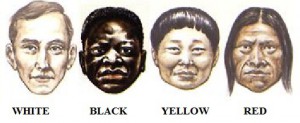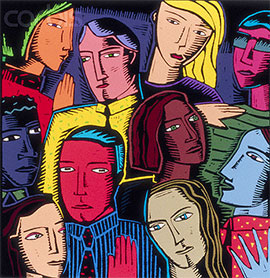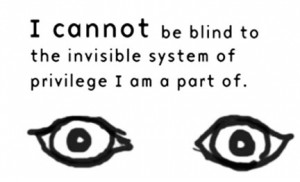Category: Video
A Conversation With Black Women on Race

Click Here to watch a short documentary in which black women talk about the challenges they face in society.
This latest installment of the NYTimes “Conversation on Race” Op-Doc video series highlights the negative emotional impact of racist attitudes on black women’s lives. Everyone we reached out to for this project was eager to tell her most intimate stories of pain and discrimination, from childhood, to work, to profiling by the police. We hope that in sharing them, we are helping to complicate the public representations of black women and girls — highlighting the unique challenges they face, as well as experiences and feelings that are universal.
From Harriet Tubman to Ida B. Wells to Dorothy Height, black women have been heavy presences in social justice movements throughout history. However, issues particular to these women are often relegated to secondary status in our collective consciousness. This seems to be changing. Recent events in Texas, Baltimore and Missouri show that black women are again in leadership roles, and are speaking out against the mistreatment they regularly experience. But in our nation’s current movement for social justice, women’s voices need a louder bullhorn. Conversations like the one we’re hoping to start with this Op-Doc are a first step to understanding, and to changing.
See below to watch the other installments of this Op-Docs series:
“A Conversation With Police on Race”
“A Conversation With My Black Son”
VIDEO: Key Points for Effective Racial Dialogue
VIDEO: Jane Elliot Brown-eye/Blue-eye Experiments
Aziz Ansari on Acting, Race and Hollywood

The hilarious Aziz Ansari recently wrote an article for NYTimes about the lack of opportunity for PoC actors in the entertainment industry. He notes that even when the rare non-white character is available, the challenges of casting tend to lead to either a white-washing of the role or to the casting of a white actor in black/brown/yellow-face.
“Even at a time when minorities account for almost 40 percent of the American population, when Hollywood wants an “everyman,” what it really wants is a straight white guy. But a straight white guy is not every man. The “everyman” is everybody.”
On Facebook, Ansari calls for more effort on the part of producers to cast non-white actors to represent diverse roles: “We are all more sophisticated, compelling, and interesting than our ethnicities, accents, and stereotypical jobs. Let’s see that on TV and film.”
Click here to read the full article.
Ansari’s been on a roll tackling Race in America; during his Tuesday night interview with Stephen Colbert on The Late Show, Ansari pointed out the rare 50% percent diversity rate of a white guy and an Indian guy sharing the stage… “an all-time high for CBS!” ???
VIDEO: Race vs. State of Mind: Rachel Dolezal’s Thoughts on Whiteness
Rachel Dolezal recently visited a daytime talkshow called The Real, where she answered the hosts’ questions about her racial identity and her views on the definitions of whiteness and blackness.
VIDEO: QI – Where are 1% Of Americans?
QI (Quite Interesting) is a British comedy panel game show hosted by Stephen Fry, which brings together four comedians a week to share anecdotes and trivia.
In this clip, Fry asks the panelists “Where are 1% Of Americans?”, which kicks off a conversation about mass incarceration, bringing to light unsettling details and statistics on racial disparity in the criminal justice system and the three-strikes law.
“No society in history has imprisoned more of its citizens”
While it’s illegal to import good made by forced labor or prisoners, American prisons produce “100% military helmets, bulletproof vests… and other items of uniform … 93% of domestically produced paints… 36% of home appliances”. It could be said that America “reinvented the slave trade”; these prisoners are paid way below minimum wage, allowing the country to compete with factories in third world countries.
“5% of the world’s population is American, 25% of people in jail worldwide are American.”
Though QI is a comedy show and this particular conversation ends in a laugh, it doesn’t detract from the gravity of the pervasive existence of racial discrimination and the business side of the American criminal justice system.
VIDEO: How Racist Are You? with Jane Elliott
“For this Channel 4 documentary Jane Elliott, a controversial former schoolteacher from Ohio, is recreating the shocking exercise she used forty years ago to teach her nine year-old pupils about prejudice.
Elliott is asking thirty adult British volunteers – men and women of different ages and backgrounds – to experience inequality based on their eye color to show how susceptible we can all be to bigotry, and what it feels like to be on the other side of arbitrary discrimination.
Does Elliott’s exercise still have something to teach us four decades on and in a different country? Presented by Krishnan Guru-Murthy, the exercise is observed throughout by two expert psychologists, Prof Dominic Abrams and Dr Funké Baffour, who will be unpicking the behavior on display.”
Video: How racist are you?
Questions:
What do you think about this social experiment?
Are we all more racist than we realize or would like to admit?
New Zealand All Blacks

The All Blacks are New Zealand’s national rugby team and the most successful international rugby side of all-time. With a winning percentage of 76.4 over 526 Tests (1903-2014) they are noted as one of the most prolific teams across any sport. It’s interesting to see this wholly positive association with the color black. Also, the team just won the World Cup of Rugby today!
 Click here to read more about the team.
Click here to read more about the team.
Click here to see their fearsome Haka.
VIDEO: The Many Problems With, “You Sound White”
This video is not only well articulated, but it hits on topics we’ve learned such as double-consciousness, race-talking, and ascription. Enjoy!


